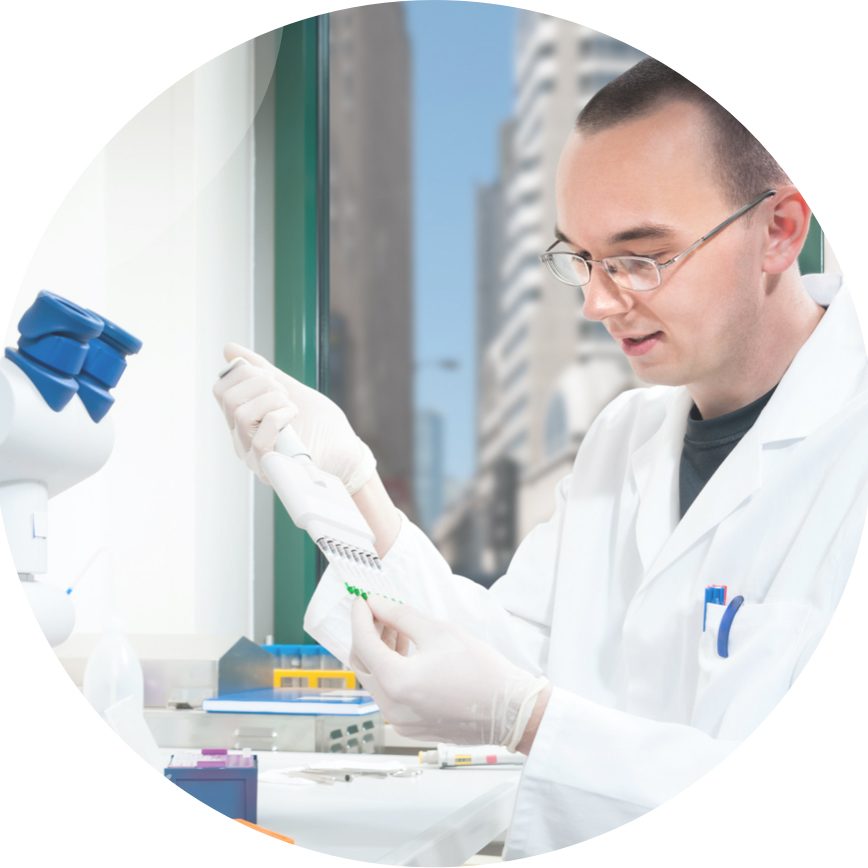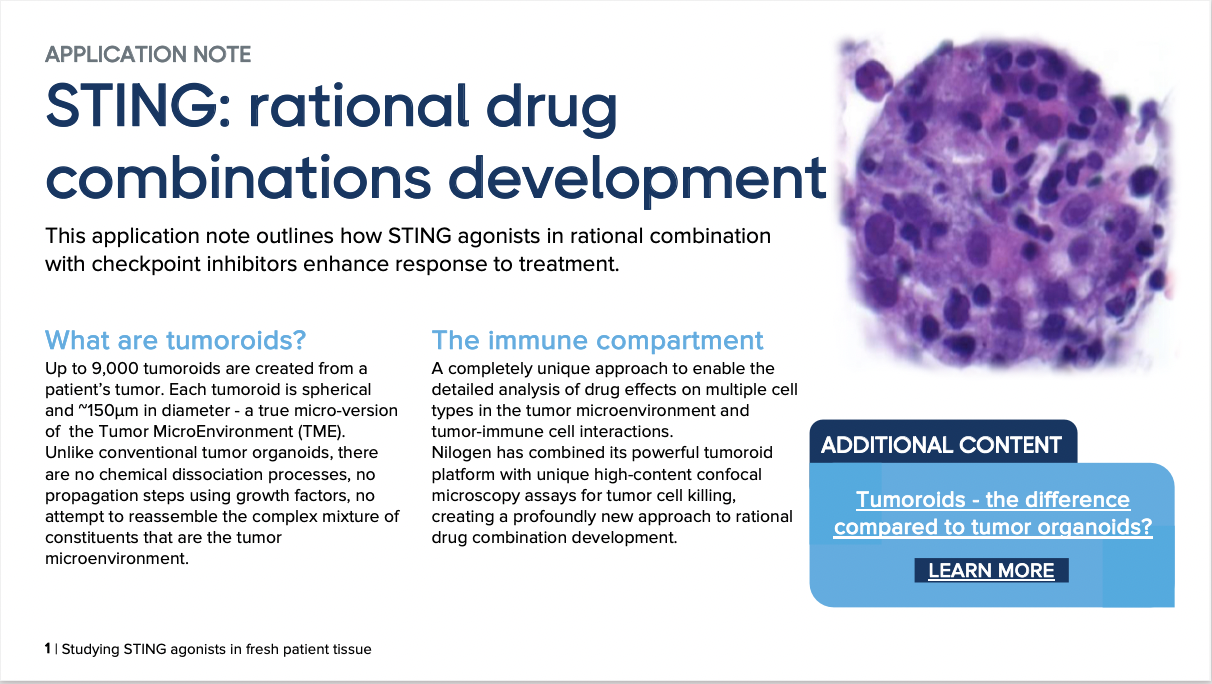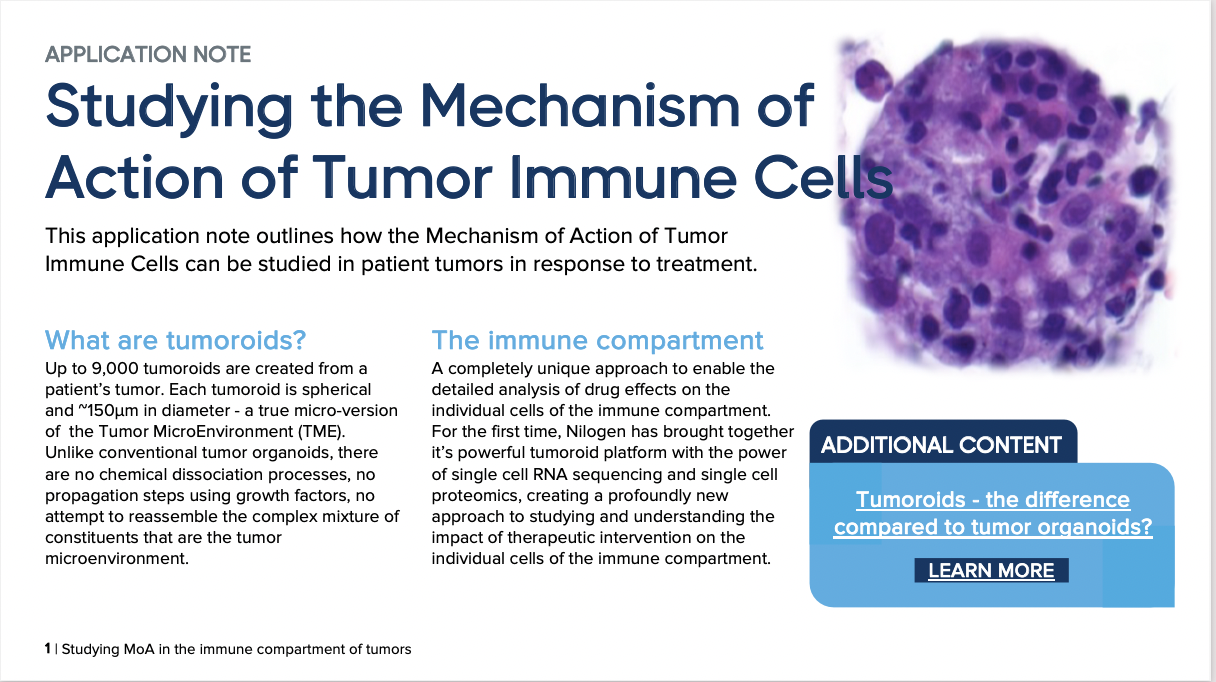Antibody Based Therapeutics
ADC development requires antibodies with genetically engineered Fc receptors that can achieve higher effector function. To fully evaluate function and efficacy, a model which contains the full human tumor microenvironment is critical.

WHY ARE HOLISTIC MODELS AND ASSAYS IMPORTANT?
Monoclonal antibodies (mAb), checkpoint inhibitors, Antibody Drug Conjugates (ADC), Antibody-Dependent Cell-mediated Cytotoxicity (ADCC) and Antibody-Dependent Cellular Phagocytosis (ADCP) all require a model that contains the full immune complement as well as tumor microenvironment to be able to evaluate the ability of these molecules to penetrate tissue, overcome stromal interactions, and quantitatively determine mechanism of action and ultimately tumor cell death.
3D-EXplore’s use of fresh patient tumor tissue in conjunction with a suite of powerful and unique assays for penetration, tumor cell killing, phagocytosis and single cell proteogenomics provides a fully human solution for ADCCs and ADCPs during ADC development.
Capabilities
Flow Cytometry
Nilogen’s extensive experience in flow cytometry matched with our optimized panels enable our clients to evaluate the immune landscape including T-cell activation, checkpoint inhibition, ADCCs, ADCPs, myeloid function, phagocytosis and cellular proliferation as well as develop and deploy custom panels.
High Content Confocal Microscopy
Quantify and match the ability of your drug to kill tumor cells with the expression of your target antigen, induce phagocytosis and measure penetration into the tumor microenvironment. Evaluate in conjunction with other proteogenomic assays to link mechanisms of action with effect during ADC development.
Single Cell RNA Sequencing
Enables the quantitative measurement of molecular activity that underlies the phenotypic diversity of cells within a tumor by sequencing individual cells. Intratumor heterogeneity is common across all tumor types; accurate characterization of this heterogeneity is essential for determining the biological importance of rare cell populations, identifying mechanisms of cancer pathogenesis and discovery of novel targets for immunotherapy and drug development.
TOTALSeq
TOTALSeq works hand-in-hand with scRNAseq to enable the simultaneous measurement of protein and RNA at the single cell level, providing enhanced cell phenotyping. Evaluating the impact of drug therapy on up to 130 protein markers in conjunction with the RNA transcriptome enables single cell analysis of individual immune cells in a heterogeneous tumor microenvironment.
Multiplex Immunohistochemistry
Multiplex Immunofluorescence (IF) provides high-throughput multiplex staining and standardized quantitative analysis for highly reproducible, efficient and cost-effective tissue studies. This technique allows the simultaneous detection of multiple markers on a single tissue section, providing a comprehensive view of tissue composition and spatial relationships both pre- and post-treatment.
SCIENTIFIC DATA

Figure legend text:
Tumoroids were assessed for ADC-mediated tumor cell killing using pHrodo-labelled cetuximab. pHrodo labelled dyes fluoresce in an acidic environment, such as when the molecule is phagocytized by a cell and enters a lysosomal compartment.
High content confocal microscopy shows penetration and internalization into the lysosomal component of the pHrodo-labeled cetuximab in the tumoroid microenvironment. Merged images depict increased tumor cell death in response to ADC treatment compared to pHrodo-alone controls.
Related Resources
Browse our latest posters and presentations using Nilogen's fresh patient tumoroid technology.


